SUMMARY
This is AI generated summarization, which may have errors. For context, always refer to the full article.
This compilation was migrated from our archives
Visit the archived version to read the full article.
Roboto” rel=”stylesheet”>
MANILA, Philippines – The Duterte government tried to fix the legalities of its anti-drug campaign policy by releasing corrective issuances along the way, but not before more than 6 million houses were subjected to Oplan Tokhang and tens of thousands were left dead in the drug war.
“The government, through the Dangerous Drugs Board, has issued subsequent regulations to supplement CMC 2016-16 in order to address the vulnerabilities on human rights which became more apparent during the latter’s implementation,” said lawyer Ray Paolo Santiago, executive director of the Ateneo Human Rights Center, which released a research paper on the legal framework of Duterte’s war on drugs.
The research concluded that the circulars and issuances that shaped the administration’s drug war violate constitutionally-guaranteed rights.
Let’s take a look at the issuances, beginning with PNP CMC No. 16-2016 released on July 1, 2016, by then-police chief Ronald “Bato” dela Rosa.
July 1, 2016
The circular defined tokhang (knock and plead) as the “conduct of house-to-house visitations to persuade suspected illegal drug personalities to stop their illegal drug activities.” In another part of the circular, it says the police should “persuade drug personalities to voluntarily surrender.”
The researchers said the circular’s wording was vague in that it gave cops wide discretion in implementing the campaign. The result, they said, was a form of custodial investigation but without the rights afforded by the Constitution.
Custodial investigation is the questioning of someone taken into custody or someone deprived of his freedom. Under the Constitution, a person in custodial investigation shall be assisted by a lawyer “at all times” especially when making an extrajudicial confession.
“Despite not being in custody, Tokhang subjects were persuaded in assorted ways that flirt with dangers sought to be prevented by constitutionally-guaranteed custodial investigation rights,” the research paper said. (READ: Duterte gov’t allows ‘drug war’ deaths to go unsolved)
“The directive shows eagerness or haste in implementation of Oplan Tokhang that either way prompts suspicion on the accuracy and sufficiency of information that fuelled the knock and plead activities,” researchers added.
This circular is already in question at the Supreme Court where the en banc resolves petitions seeking to declare the war on drugs unconstitutional. During the December 2017 oral arguments, Associate Justice Francis Jardeleza said the circular violates RA 7438 or the law on custodial investigations.
After the first month, the police was able to visit 73,958 houses with 141,659 surrenderers according to the research.
On August 3, 2016, the Dangerous Drugs Board (DDB) issued DDB Regulation No. 3 which provided guidelines for handling voluntary surrenders.
August 3, 2016
The August 3, 2016 DDB issuance spelled out more explicitly that a surrenderer must be read his or her Miranda rights prior to the interview. It also said that a lawyer must be present when the surrenderer executes his or her affidavit. These addressed the vagueness in PNP CMC No. 16 2016.
However, researchers found that DDB Reg. 3-2016 did not address another problem with the preceding PNP circular – both issuances did not differentiate between a user and a pusher, when the Dangerous Drugs Act clearly distinguish between the two and have separate penalties for each.
“A reading of the entire text of the circular and its subsequent implementing guidelines suggests that users and pushers are processed and documented in the same manner,” researchers said.
For example, possession of drugs has the maximum penalty of lifetime imprisonment under the Dangerous Drugs Act while “use of dangerous drugs” has a penalty of only 6-12 years in prison.
The research further said: “With respect to drug users, the intent of the law is primarily to rehabilitate them; hence, RA 9165 grants them the privilege of undergoing a different process (e.g., voluntary submission) that is not criminal in nature to give them the opportunity to rehabilitate and possibly be exempt from criminal liability.”
By the end of August and until the first half of September, 859,299 houses were visited and 704,161 surrendered.
September 19, 2016
On September 19, 2016, the DDB released DDB Reg. No. 4, which now provides for guidelines specific on “drug users and dependents.”
The September DDB issuance has a “less criminal” treatment of a user, pursuant to the Dangerous Drugs Act, researchers said.
However, the September DDB issuance removed the important provisions from the August issuance – the requirement to be read his/her Miranda rights and the presence of counsel during the execution of the affidavit.
“Perhaps because of these modifications that ‘de-criminalize’ the nature of the process, the latest surrender guidelines for users and dependents no longer contain the directive for state agents to inform surrenderers of their constitutional rights,” the researchers wrote.
But, according to them, the removal remains to be a cause of concern because “potentially incriminating information may still be elicited from surrendering users and dependents.”
The research also said that the September DDB issuance limited a surrenderer’s right to health. Under the Dangerous Drugs Act, those who voluntarily submit to authorities shall be, by a court order, assessed by a physician accredited by the Department of Health (DOH).
“If the examination by a DOH-accredited physician results in the issuance of a certification that the applicant is a drug dependent, he/she shall be ordered by the Court to undergo treatment and rehabilitation in a Center designated by the Board for a period of not less than six (6) months,” says the law.
Under the September DDB issuance, surrenders are screened first using the Alcohol, Smoking and Substance Involvement Screening Test (ASSIST) done through an interview or a questionnaire. Only after the screening are surrenderers classified under any of the following: low risk, mild use disorder, moderate use disorder, or severe use disorder.
“Only those later assessed to be with “severe substance use disorder” are referred to a center-based rehabilitation program. In short, not all surrenderers benefit from the detailed process prescribed by RA 9165,” the research said.

SURRENDER. People hold forms as they queue to register with the police during a mass surrender of some 1,000 alleged drug users and pushers in the town of Tanauan, Batangas. Photo by Ted Aljibe/AFP
Voluntary surrender ‘dangerous’
Researchers said that the voluntary surrender feature made Duterte’s Oplan Tokhang all the more dangerous.
In current laws, as well as in the Dangerous Drugs Act, voluntary surrender is a mitigating circumstance or an element that can exempt a drug dependent from criminal liability. (READ: How to seek drug treatment and rehabilitation in the Philippines)
Jurisprudence defines voluntary surrender as unconditional and generally “frowns upon any claimed voluntariness if the surrender is instigated by or a result of urgings from law enforcement agents.”
But because Oplan TokHang has a knock-and-plead feature, surrenderers in the campaign may not be recognized in present laws as having voluntarily surrendered, and will not be able to avail of the benefit of exemption from criminal liability. (WATCH: A day with an Oplan Tokhang team)
Researchers also noted how surrenderers are made to allow authorities to take their fingerprints, urine samples, and conduct of physical/mental examinations, including drug tests, with a waiver to allow “the utilization of the results ‘for any legal purpose that it may serve.’” (READ: The red mark)
“The waivers required of drug surrenderers compel them to divulge information that may implicate them without any assurance of an exemption from criminal liability,” said the researchers, adding that this violates both right to privacy and right against self-incrimination.
“The documents plus the implementation, the combination shows, that it is actually violative of constitutionally guaranteed rights,” Santiago said.
Santiago also said that because the circulars and issuances violate constitutional rights, then they must not be used against surrenderers in a court proceeding.
Surrenderers may also opt to file a petition for a Writ of Habeas Data which will ask the court to compel the police to destroy the information and materials in their possession, Santiago said.
Note that subsequent issuances do not declare the preceding ones as void, meaning, they still have effect as of today.
In January 2018, the PNP revamped the campaign to address concerns about human rights violations, such as limiting the controversial Oplan Tokhang to daytime only, and mandating that all operations be overseen by the Philippine Drug Enforcement Agency (PDEA).
But by then, over 6 million houses had already been visited, and over 1.5 million people had surrendered.
Accountability?
Police chief General Oscar Albayalde on Monday, April 29, shrugged off the findings of the Ateneo Human Rights Center and said that “they are not the Supreme Court.”
“They are not the proper body or authority to say that it is constitutional or not. Hindi po sila. Hindi po sila ang Supreme Court (It is not them. They are not the Supreme Court),” he said.
But several human rights groups, both local and international, have long condemned the government’s anti-illegal drugs campaign amid violations of rights of citizens, particularly those belonging to the poorest communities. (READ: Duterte’s drug war pushes victims’ families deeper into poverty)
Commission on Human Rights Chairperson Chito Gascon said that “mechanisms of accountability for perpetrators must be robust” to address these violations of constitutionally-guaranteed rights but the current situation in the country hinders this.
“Pronouncements and directives to pursue this ill-conceived and badly-executed policy have been coming directly from President Duterte himself who has empowered and enabled the persistent violation of the human rights standards found in our Constitution, it has been difficult to hold any perpetrator to account to the extent that the climate of impunity in the country has significantly worsened under his tenure,” he told Rappler.
Duterte’s campaign has claimed more than 5,000 lives during police operations alone while rights groups estimate the number to reach more than 20,000, to include victims of vigilante-style killings. (READ: The Impunity Series)
The killings since 2016 are now the subject of a preliminary examination in the International Criminal Court. – Rappler.com
Add a comment
How does this make you feel?



![[Just Saying] Diminished impact of SC Trillanes decision and Trillanes’ remedy](https://www.rappler.com/tachyon/2024/04/Diminished-impact-of-SC-Trillanes-decision-and-remedy.jpg?resize=257%2C257&crop=273px%2C0px%2C720px%2C720px)
![[Rappler Investigates] Son of a gun!](https://www.rappler.com/tachyon/2024/03/newsletter-duterte-quiboloy.jpg?resize=257%2C257&crop=450px%2C0px%2C1080px%2C1080px)
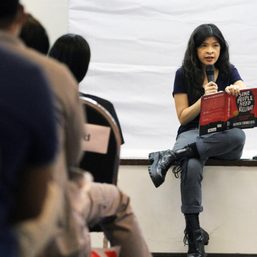

![[OPINION] ‘Some people need killing’](https://www.rappler.com/tachyon/2024/04/tl-some-people-need-killing-04172024.jpg?resize=257%2C257&crop_strategy=attention)




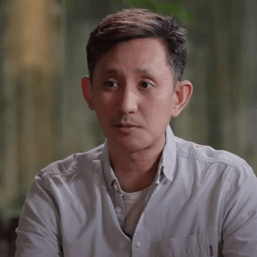
![[EDITORIAL] Sorry Arnie Teves, walang golf sa kulungan](https://www.rappler.com/tachyon/2024/03/animated-arnie-teves-arrest-carousel.jpg?resize=257%2C257&crop=310px%2C0px%2C720px%2C720px)

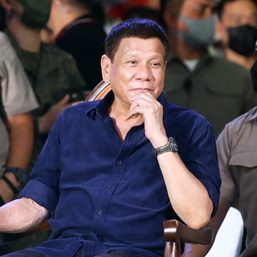
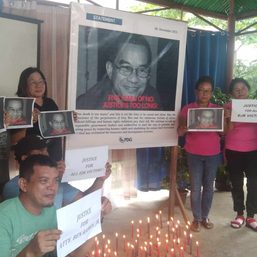
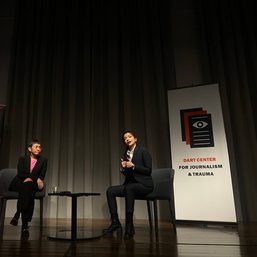
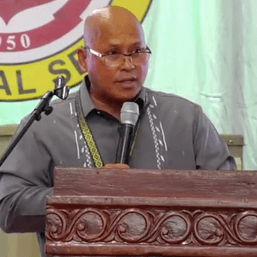
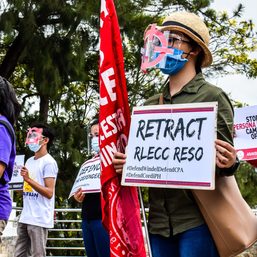
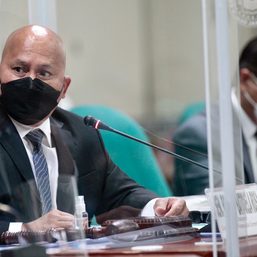
![[The Slingshot] Alden Delvo’s birthday](https://www.rappler.com/tachyon/2024/04/tl-alden-delvo-birthday.jpg?resize=257%2C257&crop=263px%2C0px%2C720px%2C720px)
![[EDITORIAL] Ang low-intensity warfare ni Marcos kung saan attack dog na ang First Lady](https://www.rappler.com/tachyon/2024/04/animated-liza-marcos-sara-duterte-feud-carousel.jpg?resize=257%2C257&crop=294px%2C0px%2C720px%2C720px)
![[Newsstand] Duterte vs Marcos: A rift impossible to bridge, a wound impossible to heal](https://www.rappler.com/tachyon/2024/04/duterte-marcos-rift-apr-20-2024.jpg?resize=257%2C257&crop=278px%2C0px%2C720px%2C720px)

There are no comments yet. Add your comment to start the conversation.